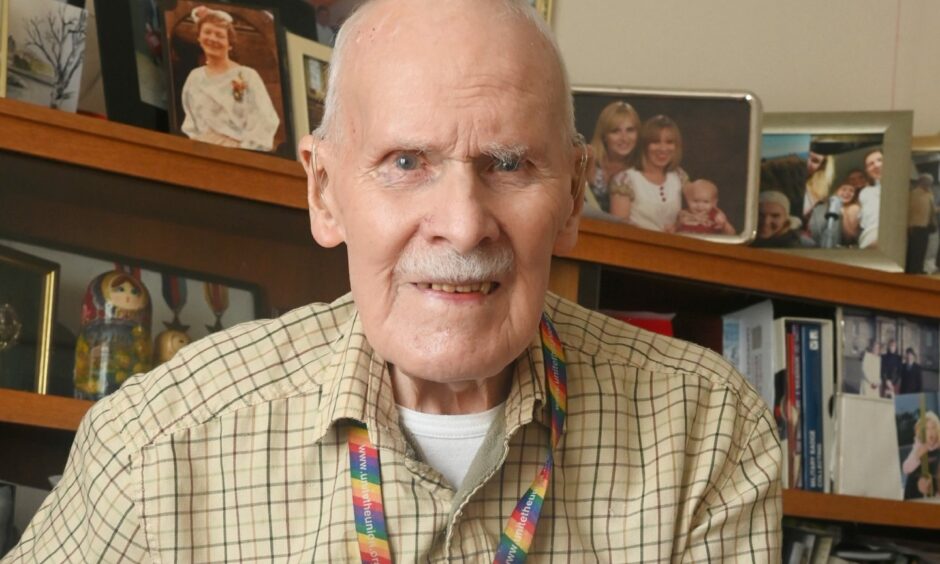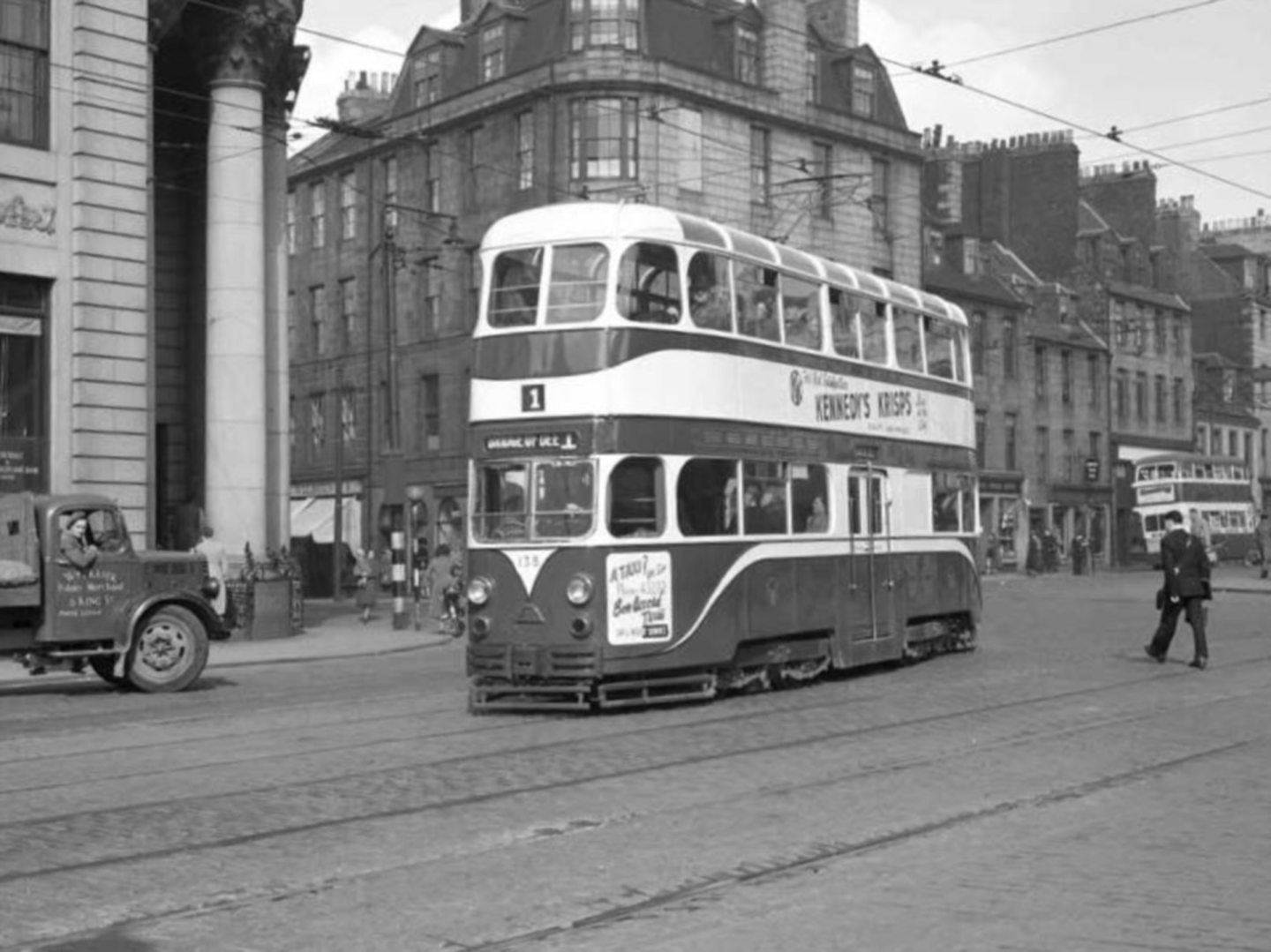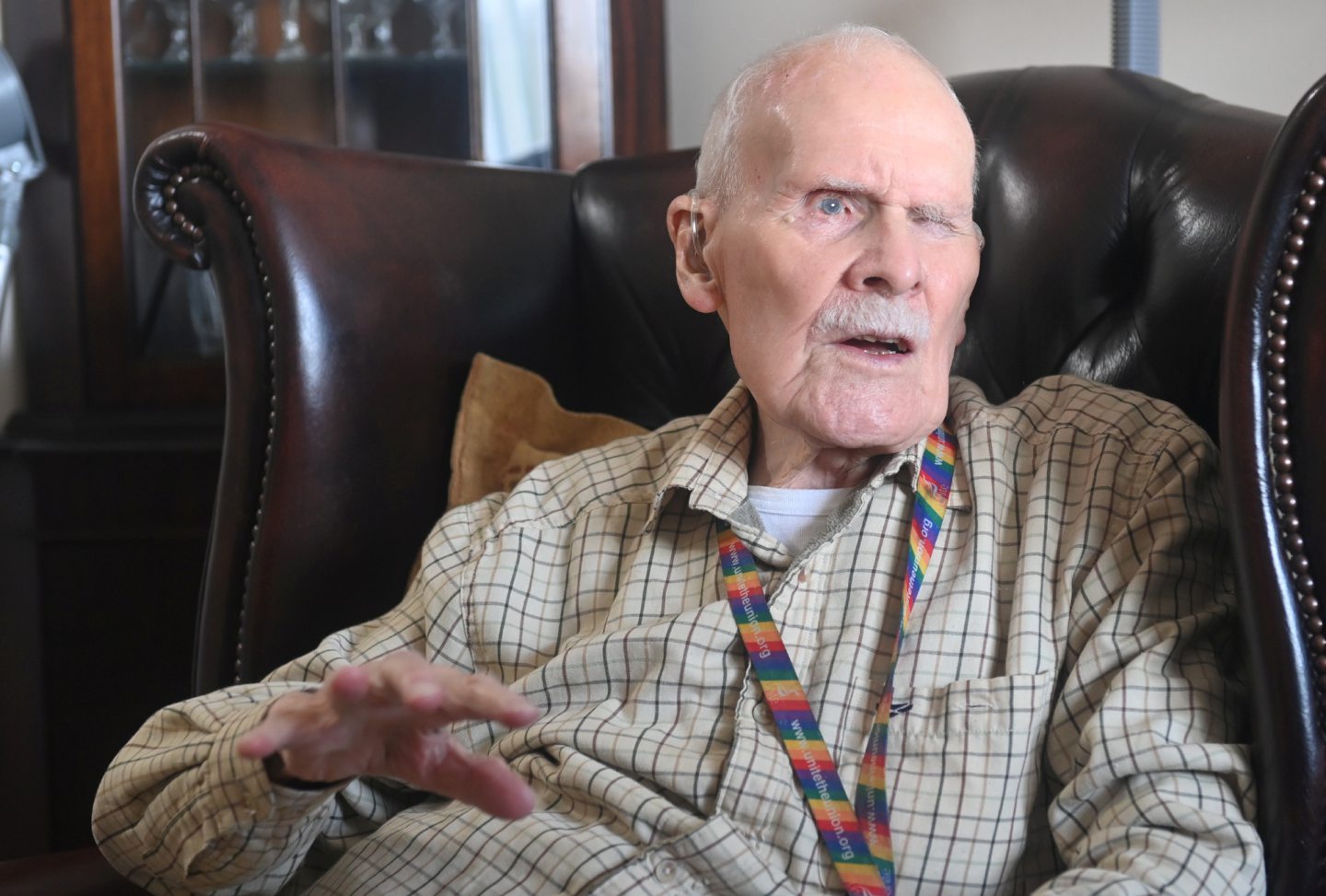
Ron Webster, a trade unionist for 80 years and a man who worked on Aberdeen’s long-gone tram network, has died at the age of 96.
During the 1940s and 1950s, he spent hours repairing trams and making sure they whizzed around the Granite City, but he packed plenty of other adventures into his life.
The proud Scot visited the former Cuban leader Fidel Castro in Havana, where he wandered into a meeting in a suit and tie and wondered why everybody else was clad in shorts; he rubbed shoulders with Nelson Mandela and Mikhail Gorbachev in Glasgow and Aberdeen; and he was one of the prominent figures who led the opposition to the “poll tax” when it was introduced in Scotland in the late 1980s.
A joiner to trade, Mr Webster started out as an apprentice at 14 when he joined the Amalgamated Society of Woodworkers.
He told me when we met last year: “At the start, my work involved making parts for RAF Wellington bombers and I joined the Gordon Highlanders in 1945. But, after being demobbed, I took up the apprenticeship again and finished it working on trams.
“They definitely had the edge over buses. They were carefully created out of brass and mahogany with a genuine craftmanship and there was a quality to them that you didn’t find in buses, which were just big pieces of aluminium.”
Year after year, he served his city in a variety of different roles, including a spell as a Labour councillor on both Aberdeen District Council and Aberdeen City Council and, in 1989, he became president of the Scottish Trades Union Congress.
And it was in that role, when he was in his 60s but still a force of nature, that he took to the streets again to campaign against the controversial community charge, more famously known as the poll tax, which sparked resentment across Scotland.
He said: “We had all seen what had happened to manufacturing and the steel and coal industries and I couldn’t just sit back and do nothing.
“The tax angered many of us, not least because we were being used as guinea pigs for it in Scotland. So we organised marches and it drew support from folk of all ages and backgrounds and gradually built up momentum.
“There weren’t many victories for us under (Margaret) Thatcher, and, for a while, it was one factory closing down after another – British Leyland, Gartcosh, Ravenscraig, Timex – ach, when I look back to those days, there were too many to mention.
He was a great friend
“But we had to do what we could to find new jobs for all the people who were left unemployed. And the tax was eventually scrapped.”
Veteran trade unionist Tommy Campbell said: “It’s hard to overstate the outstanding contribution which Ron made to campaigning for trade union rights and fighting to improve the lives of working-class people not only in Aberdeen, but internationally.
“He was a vocal opponent of racism and fascism and spent his life promoting hope instead of hate. And I was proud to call him a friend.”
He is survived by his daughters, Heather and Rona, his son Andrew, and eight grandchildren and seven great-grandchildren.
The funeral details will be announced in due course.

